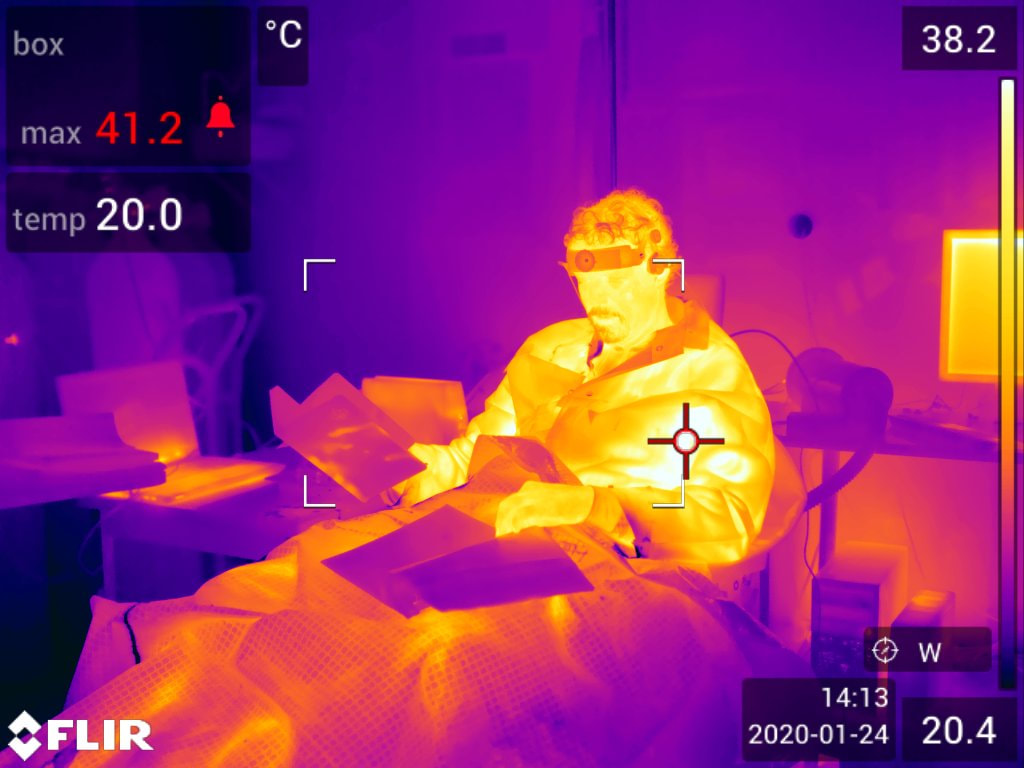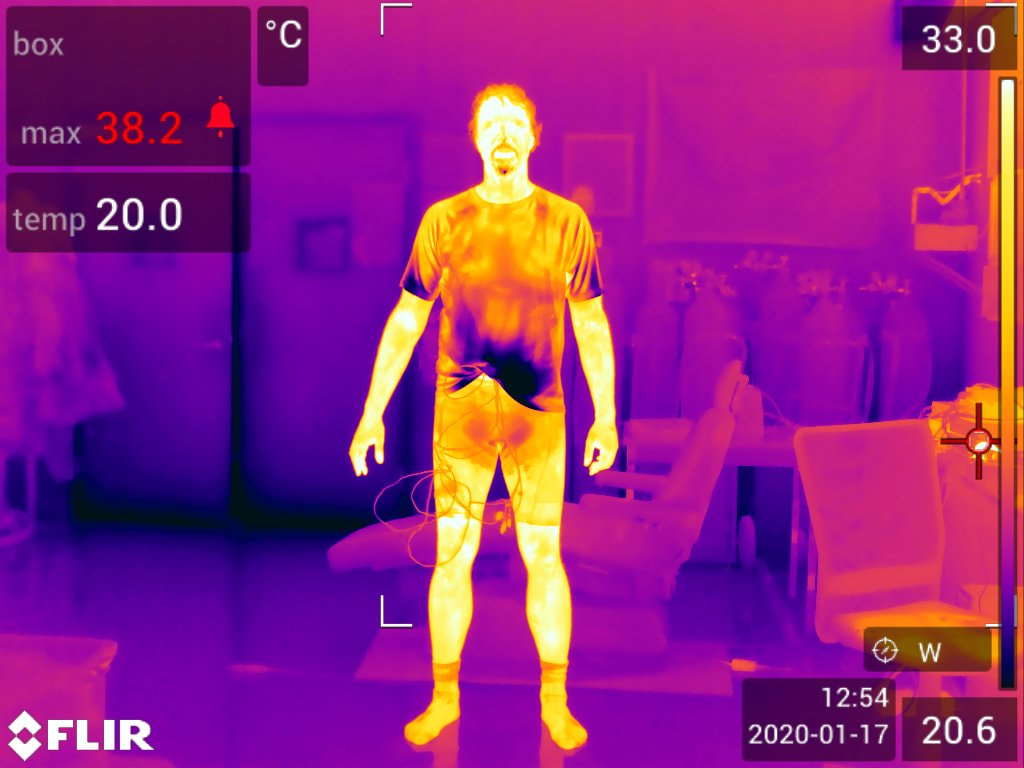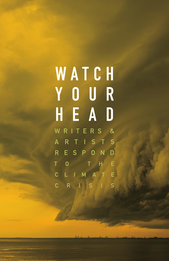|
11/21/2020 POETRY: HARI ALLURIDEAR PHOSPHORESCENCE, If water could be a gnawing thing. If, against you, the knifeglint of a type of ship. If away is where our eyes point certain bodies go. If policy, if gaze, what blooms. To demand certain bodies die a little more. To: from where. How to slur them with a glow other than blood muzzle. If yours, too, is a language made for prayer. Make what type of bed to tuck a country in. Heroicize, in what order: tenderness, of, lack. Allow me the time you take to dry yourself in ocean. Gnawing at whose insides. As if a home. "Dear Phosphorescence," first appears on 18MillionRising.org as part of the #NoMuslimBanEver Micropoem Series. Hari Alluri (he/him/siya) is the author of The Flayed City (Kaya) and Carving Ashes (CiCAC/Thompson Rivers). A winner of the 2020 Leonard A. Slade, Jr. Poetry Fellowship for Poets of Color and an editor at Locked Horn Press, he has received grants from the BC Arts Council and the Canada Council for the Arts and fellowships from Las Dos Brujas, Port Townsend, and VONA/Voices writers workshops. His work appears in the Pandemic Solidarity (Pluto) and Poetry In Voice / Les voix de la poésie anthologies, as well as recently in Anomaly, The Capilano Review, Ovenbird, Prism International, The Puritan, and elsewhere.
11/21/2020 POETRY: ADAM DICKINSON
ACKNOWLEDGEMENTS Thermal camera images by Gary J. Hodges. Thanks to Dr. Stephen Cheung, Phillip Wallace, and Scott Steele for assisting with testing and analysis at the Environmental Ergonomics Laboratory at Brock University. Adam Dickinson is the author of four books of poetry. His latest book, Anatomic (Coach House Books), involves the results of chemical and microbial testing on his body. His work has been nominated for the Governor General’s Award for Poetry, the Trillium Book Award for Poetry, and the Raymond Souster Award. He was also a finalist for the Canadian Broadcasting Corporation (CBC) Poetry Prize and the K.M. Hunter Artist Award in Literature. He teaches Creative Writing at Brock University in St. Catharines, Ontario, Canada.
11/21/2020 POETRY: SUE GOYETTEEXCERPT FROM OCEAN forty-nine The harbour didn’t like being held captive by the shadows of our buildings. We treated it well but still its dorsal fins weakened and flopped. The tide was nothing more than a sleepy scratch of water up over rocks and then a yawn back down. The balls we threw to it sank. It stopped slurping, it stopped nibbling. It hardly growled. Some days it looked like a carpet, other days, a flooded campsite: disks of paper plates, lipsticked cigarette butts, the wet embers of our vacations. What was the fun of these skyscrapers if the only view we had was a petulant body of water? We bought fish from the market to feed it. The older women crocheted the most tender dialogue skimmed from our dreams, carrying afghans by the armload down to its shore. In this way, they invented nets and managed to catch the grit of starlight from previous nights. With the right amount of sugar and boiled darkness, we soon had vats of a nectar so potent it bubbled. It wasn’t that we got drunk but forgetful and became so greedy for more, we over-fished our dreams for their tenderness. When poverty arrived, we were down to the bones of our talk. If we rubbed two sticks together, briefly we’d be nourished by the smell of their wood. fifty-five Our elders insisted the ocean was still there. That we were born with a seed of it and when we spoke, its waves pressed against our words for a further shore. But we had let ourselves become sub-divided and suburban, buckling our talk into seatbelts, mad always for safety. When had our schedules become the new mountains? We were doing our best to ignore how grey our memories were becoming, how stooped and hard of hearing our laughter was. The ocean, apparently, was right in front of us and we were dropping like flies. We bought the dried flowertops of our politicians’ explanations. We tuned our radios to the sunsets and downloaded whalesong overdubbed with protest songs. Our intent was good but with airbags. The poets rigged antennas to the antique words of gratitude with a cayenne of the unexpected but we were tired of the poets, they were chesterfields or they were curtains. We wanted pure ocean podcast into our veins but tethered while we slept. We wanted death to be a stranger we’d never have to give directions to. We consulted the beekeepers infamous for not getting stung but they were in a meeting with the poets. We consulted the gamblers but they wanted to see us only to raise us ten. Our voices were rarely coming home covered in mud anymore. fifty-six Filmmakers had started making films of the ocean in 3D. Scratch and sniff coastal cards were sold at lottery booths. Material for dresses was cut with the froth of tide in mind. We had wanted the ocean to be the new flavour, the new sound. We’d drive for miles to get a glimpse of it because, let’s face it, it revitalized the part of us we kept rooting for, that apple seed of energy that defied multiple choice career options. The ocean had egged the best part of us on. And it scared us. We never knew what it was thinking and spent thousands on specialists who could make predictions. And the predictions always required hard hats and building permits, furrowed eyebrows and downward trends. Why is it so hard to trust something that leaps, disappears and then reappears spouting more light? When had our hearts become badly behaved dogs we had to keep the screen door closed to? Have you ever run along its shore, the pant of it coming closer? And that feeling that yipped inside of you, the Ginger Rogers of your feet, your ability to not get caught then, yes, get soaked. Didn’t you feel like it was part of your pack? When it whistled, whatever it is in you that defies being named, didn’t that part of you perk up? And didn’t you let it tousle you to the ground, let it clean between your ears before it left you? Wasn’t that all right? That it left you? That we all will? "forty-nine,""fifty-five," and "fifty-six" published in Ocean (Gaspereau, 2013) Sue Goyette lives in K'jipuktuk (Halifax), the unceded and unsurrendered land of the Mi’kmaq peoples. She has published six books of poems and a novel. Her latest collection is Penelope (Gaspereau Press, 2017). She has been nominated for the 2014 Griffin Poetry Prize and the Governor General’s Award and has won several awards including the 2015 Lieutenant Governor of Nova Scotia Masterworks Arts Award for her collection, Ocean. Sue teaches in the Creative Writing Program at Dalhousie University.
|
|
ISSN 2563-0067 © Copyright 2023 | Watch Your Head Contributors Sign up for our Newsletter Buy our print anthology Watch Your Head: Writers & Artists Respond to the Climate Crisis (Coach House Books, 2020). |


